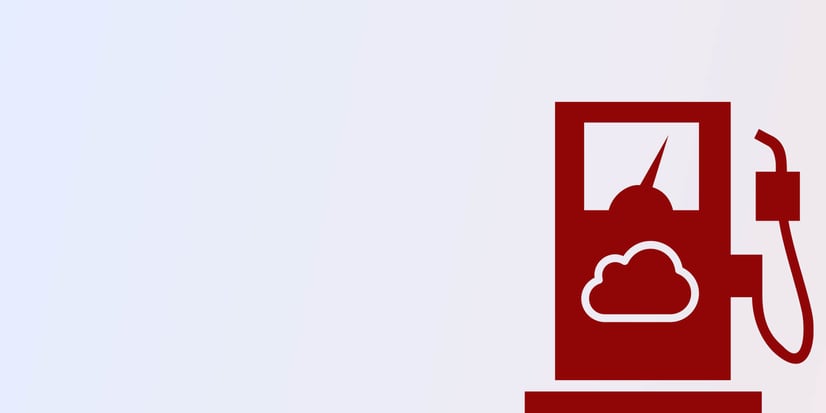Why you shouldn't fear moving your gas station to the cloud

Fear: “I don’t trust the cloud”
An issue of confidence has been surrounding the cloud ever since its appearance. Even though we have now gotten used to SaaS (think Office 365: when it was announced, many companies didn’t like the thought of not holding on to their emails. Now every other big company uses it to store its communications in the cloud), many are still wary when it comes to having all their critical business data out of their hands. They are afraid that the cloud will lose their business data, they are scared because they do not know where data is stored. We suggest two solutions to overcome these fears:Solution 1: Cloud operators
There are many players in this field that specialize in offering secure and reliable service - and have plenty of tools to address your fear of your store not being operational. You can chose between a private cloud setup tailored to your needs and a move to a public cloud such as Azure.Solution 2: Partial move to the cloud
Are you curious about the cloud, but too skeptical to risk your most profitable stores? You could take a first step by moving only your peripheral stores to the cloud. Pinpoint your key locations, based on throughput; keep a Retail server in those stores, and move the others to pure cloud. Once you have tested the cloud’s reliability, you may be ready to take a more decisive step for your company’s future.Fear: “I don’t trust the infrastructure”
The cloud-based setup needs an internet connection (to a DSL line) to be functional. This requirement has sparked concerns from companies with stations located in areas where the connection is flaky or unreliable or in general have concerns in regarding to up-time of DSL lines. Nowadays there are many technical solutions that can help bypass infrastructural issues, and ease forecourt managers’ fear of losing their business data. We suggest two:Solution 1: Network backup solutions
Let’s look at your biggest fear: you have moved your station to the cloud, and a landline breaks down. No panic! There are many great (and very cost-effective) backup solutions, such as the 3G mobile card in your router. If the landline stops transmitting data the router will detect it and in a matter of seconds, and switch the traffic over to the 3G card. Your staff won’t even realize that there has been a DSL network outage. Managers who are very concerned about loss of connectivity may even decide to safeguard their business by installing two landline solutions from different companies, to minimize the risk of outage. In our project with JET Tankstellen, the store was set up with a backup 3G card, and we reached all the goals the company had set regarding up-time of the store.Solution 2: Go hybrid
If you are very cautious, you may choose a hybrid setup, instead of going pure cloud. A Retail server, hosting the logic the POS use and buffering transactions, will be located in your stores. The Retail server then communicates to the cloud. If communications are down your POS still use the Retail server in store, which will sync back to the cloud once the line is back. Although this is an effective solution to test the cloud, this setup lacks some of the advantages of the pure cloud ones. For instance, the need of a machine in the back office running the Retail server bring the costs up compared to a pure cloud setup.Other concerns
We have also got some questions regarding performance of the setup and usability:- Is the system fast enough to handle rapid transactions at the store?
- Can the system handle large volumes of data on a busy day?
- How will users that have used traditional POS for many years adapt to the use of tablets as their POS?
Early movers will get to market first
The cloud is relatively new in the retail world, and many business are still wary of jumping on board. This is understandable: fear of new technology is a common feeling. On the other hand, even old technology is not immune from snags and breakdowns (how many companies had their server break down, causing a data catastrophe?). Although the cloud might look scary, and unknown, it is the future. If you are scared, try stepping on it cautiously, using the solutions we have outlined above: move just part of your operations, implement hybrid solutions, or set up triple backup solutions. Our advice, though, is to take a leap of faith and jump on the cloud, now. You won’t regret your decision to be an early mover, and not a follower. Do you want to be a leader in forecourt? Then contact our team: our experts look forward to answering all your questions.

